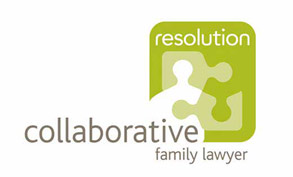Posted on: Oct 31, 2024
What is Testamentary freedom?
Testamentary freedom is a right for a person to decide what they would like to happen to their estate using a Will without any restrictions, rules or legal obligations on what they can do with their estate. In England and Wales, everyone has testamentary freedom to make decisions about who inherits their estate including bank accounts, properties, investments, shareholdings or valuables.
This is different to the Rules of Intestacy which are a part of the laws in England and Wales, and these set out what happens to a person’s estate if they don’t have a valid Will in place at the time of their death.
However, testamentary freedom is not available in every country or jurisdiction and there are lots of countries around the world that have legislation and laws which dictate who can inherit from your estate.
Also, when you are considering making a Will and the testamentary freedom to decide how you want to estate your estate to go, there are a couple of things that you need to consider and be aware of.
Firstly, there are certain assets that may pass by the rules of survivorship. Survivorship is where an asset is held jointly, and it automatically pass outside of your estate to the surviving joint owner on your death. The assets that usually pass by survivorship are joint banks accounts and property held jointly as joint tenants.
Secondly, if certain individuals feels that they have not been adequately financially provided for in a Will then they could look to make a claim under The Inheritance (Provision for Family and Dependants) Act 1975. This allows certain individuals to claim a share of a deceased person’s estate, even if they were not included in the will or if the estate did not provide for them adequately. Here are some key points about making a claim under this Act:
Eligible Claimants
1. Spouse or Civil Partner: A husband, wife, or civil partner can claim if they feel they haven’t received reasonable financial provision.
2. Former Spouse or Civil Partner: They may claim if the marriage or civil partnership has not been formally dissolved.
3. Children: Biological and adopted children can make a claim, regardless of age.
4. Dependants: Individuals who were financially dependent on the deceased (e.g., cohabitants) may also claim.
Grounds for Claiming
• Lack of Reasonable Financial Provision: Claimants must demonstrate that the provision made for them is inadequate.
• Financial Needs: The court considers the claimant’s financial situation and needs, as well as the deceased’s obligations and responsibilities.
Time Limits
• Claims must generally be made within six months of the grant of probate or letters of administration.
Court Considerations
When assessing claims, the court takes into account:
• The deceased’s intentions (as expressed in the will or other communications).
• The financial needs of the person making the claim.
• Any other relevant circumstances, including the size of the estate and the needs of other beneficiaries.
Process
1. Filing a Claim: A formal application must be submitted to the court.
2. Mediation: Parties are often encouraged to resolve disputes through mediation before proceeding to court.
3. Court Hearing: If mediation fails, the case may go to a court hearing where evidence is presented.
Therefore, this highlights the importance of making a Will and estate planning, the benefits of seeking legal advice so that you can ensure that you have considered all the factors.
Our team at Baines Bagguley Penhale have the relevant expertise and experience, to provide you with appropriate advice.
For further information please visit our website at www.bbpsolicitors.co.uk. Or contact us for further information on 01524 401010.
How can we help you?
We offer straightforward legal advice and assistance for clients in relation to legal matters for both individuals and businesses.






